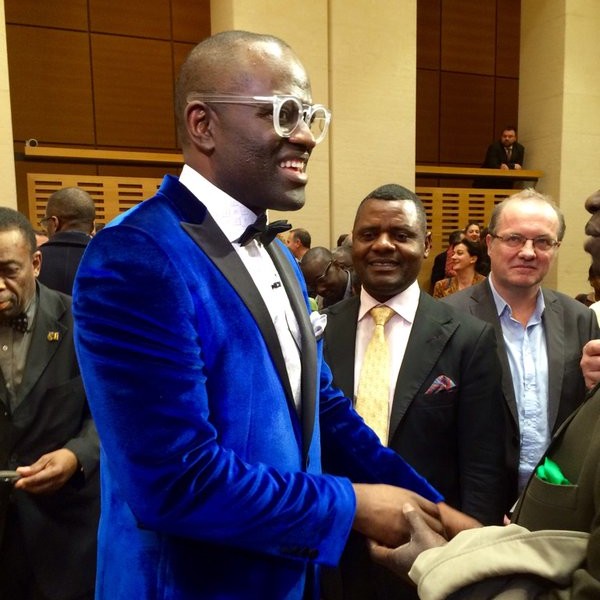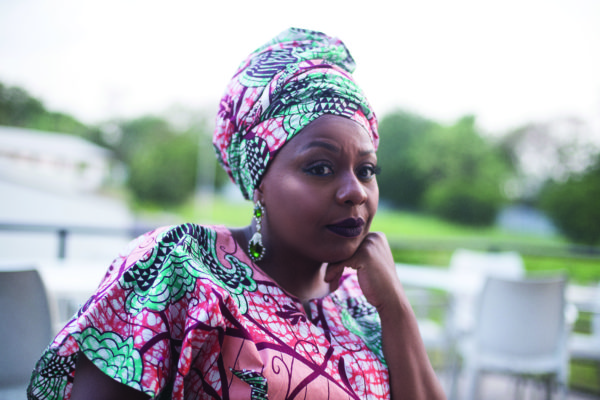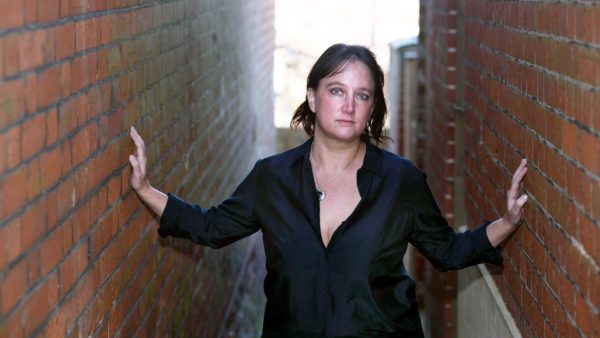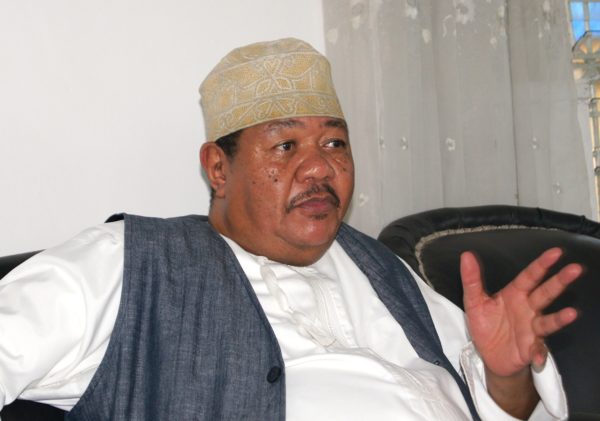
For its 2018 edition, the Caine Prize has recruited a host of big names for its panel of judges. Alain Mabanckou, Dinaw Mengestu, Lola Shoneyin: it looks like an actual shortlist the Caine Prize itself might have announced in its early years in the 2000s. The three are joined by the prize’s 2007 finalist and 2008 winner Henrietta Rose-Innes and journalist Ahmed Rajab. With the first four names, it is, as far as notability goes, the prize’s most accomplished panel, and it will be interesting to see their choices for the shortlist come April 2018.
Ethiopian Dinaw Mengestu is a graduate of Georgetown University and of Columbia University’s M.F.A programme in fiction. In 2007 the National Book Foundation named him a “5 under 35” honouree, and in 2012 he was selected as a MacArthur Fellow. He is the author of four novels: The Beautiful Things That Heaven Bears (2007); Children of the Revolution (2007); How to Read the Air (2010); and All Our Names (2014). An active journalist, his work has appeared in various publications, including Rolling Stone, The New Yorker and The Wall Street Journal.

Congolese Alain Mabanckou is the author of six volumes of poetry and six novels, and in 2012 he won the Grand Prix de la Littérature. He is also the recipient of the Subsaharan African Literature Prize and the Prix Renaudot. His books include African Psycho, Broken Glass, Memoirs of a Porcupine and Black Bazaar. In 2015 he was a finalist for the Man Booker International Prize. He currently teaches literature at UCLA.

Nigerian Lola Shoneyin’s published work includes poems and children’s books. Her debut novel, The Secret Lives of Baba Segi’s Wives, was published in 2010 and was longlisted for the Orange Prize, and went on to win the 2011 PEN Oakland/Josephine Miles Literary Award and the 2011 Ken Saro-Wiwa Prose Prize. Shoneyin is the Director of Ake Arts and Book Festival. She is also the Creative Director of the new Kaduna Book and Arts Festival which first took place in Kaduna State, Nigeria, earlier this year.

South African Henrietta Rose-Innes has published four novels and a collection of short stories, and is currently completing a fifth novel, Stone Plant, due in 2018. Her work has been widely published and translated into several languages, with her novel Nineveh winning the 2015 François Sommer Literary Prize in French translation. In 2012, her story “Sanctuary” took second place in the BBC International Short Story Competition. A shortlistee for the Caine Prize in 2007, Henrietta was awarded the 2008 Caine Prize for her story “Poison,” which also won the Southern African PEN Literary Award.

Ahmed Rajab has worked for the BBC World Service, Index-on-Censorship, Africa Events, the seminal Africa Analysis which he edited for 20 years, as well as UNESCO. From 2006-2009 he was Head of Newsroom (Middle East/Asia Bureau in Dubai) for IRIN, the then UN humanitarian news agency. In addition to being a regular columnist for Tanzania’s premier weekly Raia Mwema, he now works as a consultant and is affiliated to the Kaduna-based Gusau Institute. Ahmed also writes poetry and his work is included in the anthology African New Voices (Longman, 1997).
Founded in 2000, the Caine Prize is awarded to a short story between 3,000 and 10,000 words by an African. In the 2000s, the prize was a career-maker for new writers.
Previous winners are Sudan’s Leila Aboulela (2000), Nigeria’s Helon Habila (2001), Kenya’s Binyavanga Wainaina (2002), Kenya’s Yvonne Owuor (2003), Zimbabwe’s Brian Chikwava (2004), Nigeria’s Segun Afolabi (2005), South Africa’s Mary Watson (2006), Uganda’s Monica Arac de Nyeko (2007), South Africa’s Henrietta Rose-Innes (2008), Nigeria’s E.C. Osondu (2009), Sierra Leone’s Olufemi Terry (2010), Zimbabwe’s NoViolet Bulawayo (2011), Nigeria’s Rotimi Babatunde (2012), Nigeria’s Tope Folarin (2013), Kenya’s Okwiri Oduor (2014), Zambia’s Namwali Serpell (2015), South Africa’s Lidudumalingani (2016), and Sudan’s Bushra al-Fadil (2017).
This year, Nigeria’s Arinze Ifeakandu became the first writer published by Brittle Paper to make the shortlist.
The five judges will meet in April 2018 to select the shortlist. The winner will be announced on 2 July 2018 at Senate House, London.









Samuel Dzombo December 16, 2017 03:47
The African literary scene is rising.I wish them all the best.